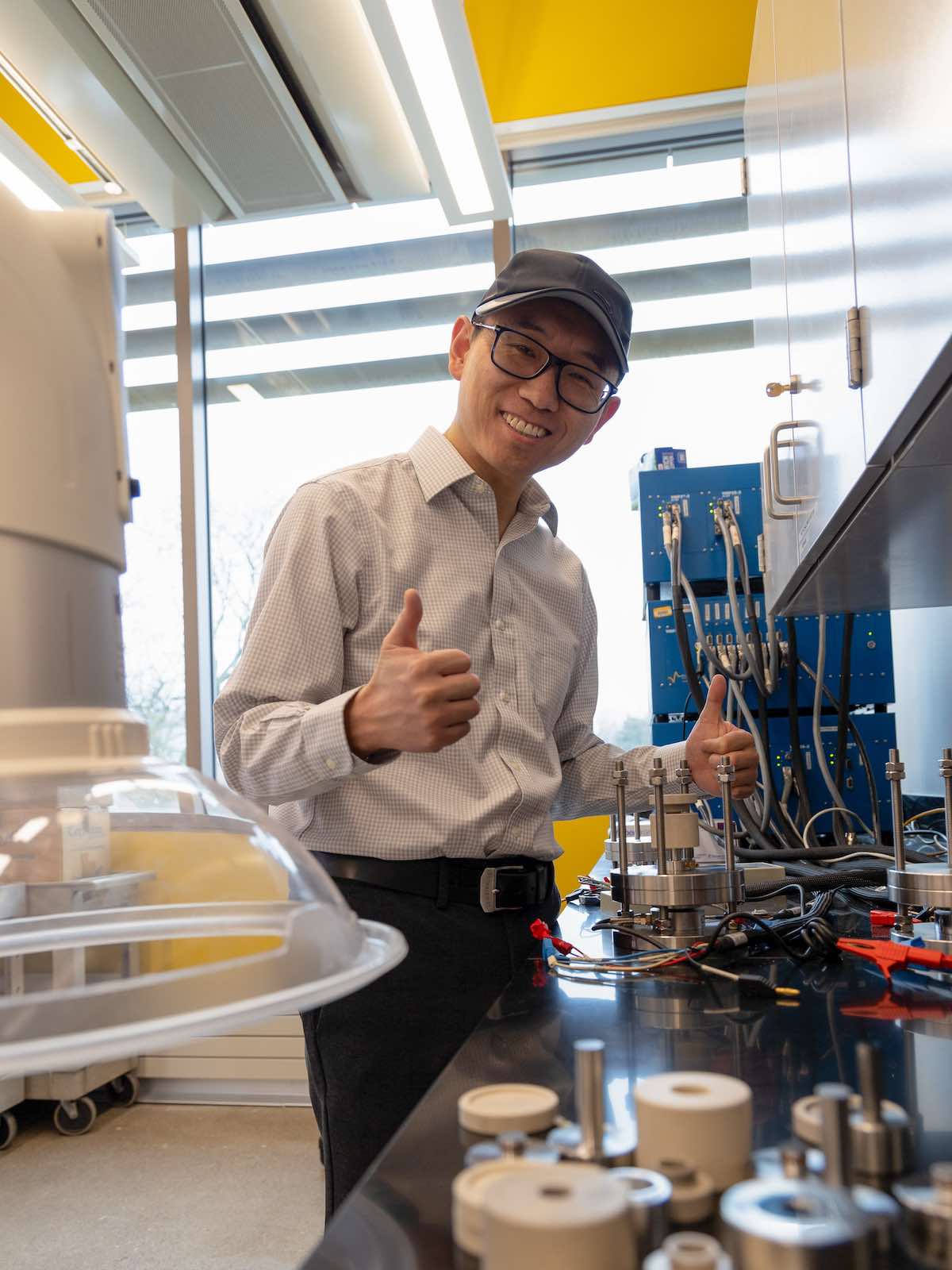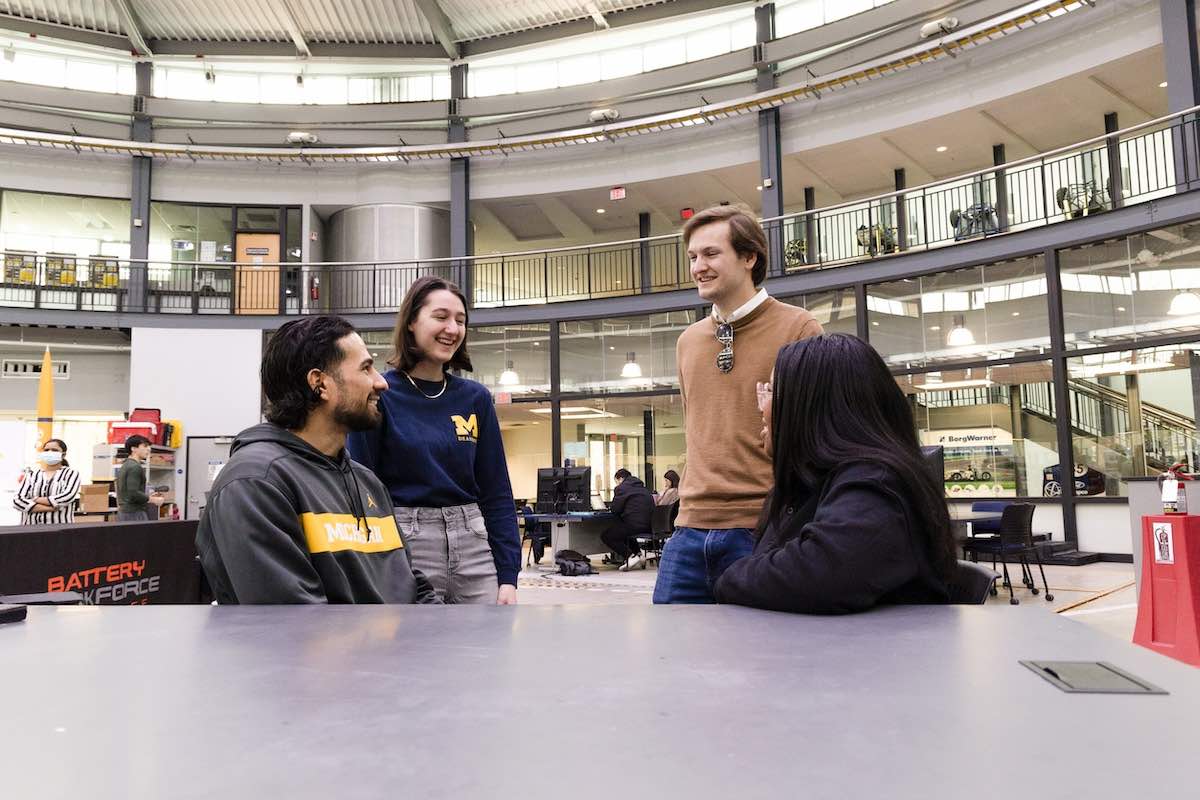
You need only look at commercials to know that automakers are betting big on electric vehicles. Indeed, nearly all major vehicle manufacturers have announced significant shares of their fleets will go electric by the end of the decade, with more than a handful announcing plans to completely phase-out combustion technology in that timeframe. Not surprisingly, the rapid shift toward EVs isn’t arriving without a few growing pains. One of the biggest current challenges for automakers is simply finding enough engineers who are well-versed in the new technologies, especially the high-capacity lithium-ion batteries that are fueling the EV revolution. A recent report from Bloomberg noted that the workforce shortages are so acute that a senior-level battery engineer can command a salary on par with a company CFO. In Japan, a government-industry partnership has turned to educating high school students for battery-related careers, in an effort to train the 30,000 workers they’ll need to keep the industry thriving.
The U.S. Department of Energy has also taken note, launching a variety of initiatives to help sustain the EV industry and reach the U.S. government’s goal of net-zero carbon emissions by 2050. Among them is the Battery Workforce Challenge, a national competition co-sponsored by the Department of Energy and Stellantis and managed by Argonne National Laboratory, which challenges collegiate student teams to design, build, test and integrate an advanced EV battery system into a future Stellantis electric vehicle. It’s an incredible opportunity for students, says Associate Professor of Electrical and Computer Engineering Xuan (Joe) Zhou, who’s advising the UM-Dearborn team, one of 12 teams, and the only team in Michigan, selected for the three-year competition. “Stellantis is supplying a real battery cell, the charger, even a vehicle to us, and then the students will design the whole pack, including the battery management system, and put it in a real vehicle,” Zhou says. “I’ve been working with batteries for many years, and even I haven’t had a chance to work with a whole pack! So this is really going to be special for the students.”

Because of the focus on workforce development, the competition is also structured to closely mimic the industry environment, which includes phases for design, simulation, controls development, testing, and vehicle integration and demonstration. Teams will periodically report in with key deliverables, which gives them an opportunity to get feedback on their work, just like they would in a real workplace. Zhou says each team is assigned two Stellantis engineers, who they can consult with during the competition. Two students from each team will also get to complete internships with Stellantis.
Zhou is also excited that the UM-Dearborn team is enlisting the talents of students from neighboring Henry Ford College. In Fall 2023, HFC became the first college in the country to offer a Battery Technician Certification curriculum, which is part of its growing lineup of vocational programs focusing on electric vehicles. “I think the DOE is really excited to see us working with HFC because, of course, we need engineers to design the vehicles, but we also need high-skill technicians who can fix the vehicles,” Zhou says. “Also, we have a very close relationship with HFC, where students with a certain GPA are guaranteed admission to UM-Dearborn. So for HFC students who want to transfer to a four-year engineering program, it’s an excellent opportunity to come to our campus and get hands-on with the latest technology.”

UM-Dearborn doctoral student Duncan Tyree, whose current research is focused on battery manufacturing, says he joined the Battery Workforce Challenge team to deepen his expertise in one of his favorite subjects. But he’s also hoping the broad scope of the competition will stretch some of his non-engineering skills. As the UM-Dearborn team’s project manager, he’s looking forward to mentoring the younger engineering students, as well as to opportunities for sharpening his communication and meeting facilitation skills. Moreover, because his academic experience has focused mostly on simulation, he’s excited to work on a project that will ultimately have a real-world proving ground. “I think year two is going to be the most challenging — that’s when we actually start putting the battery pack together,” Tyree says. “In some ways, for someone with my background, doing things like putting a battery in the vehicle could be the least exciting thing. But like with any project, there are times when a manager has to step in and help out with whatever needs to get done, and I’m actually really looking forward to that part of it. I’ve had some leadership positions, like with student organizations, and this feels a lot different. This is a national competition, and so there’s a lot more at stake. People are counting on you, and we all want to do as well as we can.”
Zhou and Tyree both say recruiting for the team is going well. The group now includes more than 20 UM-Dearborn students from a variety of programs and another 10 students from Henry Ford College — though Zhou says there’s still plenty of room for more. “Basically, we can’t have enough help,” Zhou says. “It’s a very complex project, and we are up against some top engineering schools like the University of Alabama and Ohio State, who have years of experience doing competitions like this. But I think we have the makings of a strong team. They’re hard-working students and I’m very excited for them to have this opportunity.”
###
Are you interested in joining UM-Dearborn’s Battery Workforce Challenge team? If so, please reach out to project manager Duncan Tyree or faculty advisor Associate Professor Xuan (Joe) Zhou. You can also learn more about the Battery Workforce Challenge on the Advanced Vehicle Technology Competitions website. Other faculty members supporting the Battery Workforce Challenge team include: Professor Wencong Su, Lecturer Azeem Hafeez, Assistant Professor Jaerock Kwon, Associate Professor Maggie Wang, Assistant Professor Junho Hong, Associate Professor Samir Rawashdeh, Associate Professor Youngki Kim, Assistant Professor Lei Chen, Assistant Professor Zhen Hu and Assistant Professor Zheng Song. Story by Lou Blouin





